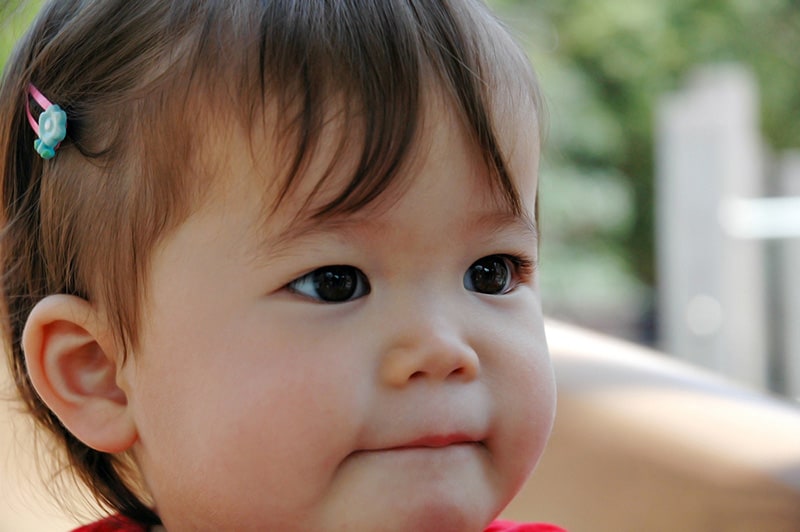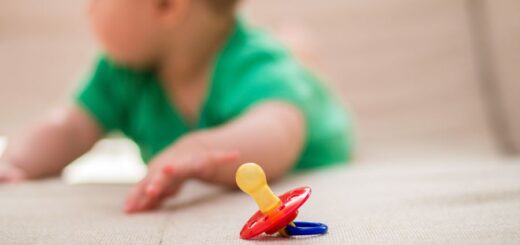Baby sucking bottom lip: Why it happens and what to do about it
When you spotted your baby suck her bottom lip, it was too cute. Now that she’s been doing it for a while, you might be starting to get worried. Most babies do this: they use their lips as a form of self-soothing, just like they would do with a pacifier or thumb-sucking.
It’s usually nothing to worry about and most babies have grown out of the habit by the time they turn one year old. In some cases, babies resort to voluntarily sucking on their bottom lip if their upper teeth are beginning to grow in and the discomfort leads them to soothe their gums in this way. But if you’re still concerned, speak with your pediatrician for further assurance. Baby sucking bottom lip: Why it happens and what to do about it.
Most babies like to suck their upper lips, especially when they are feeling anxious or fussy. This is a common habit that can arise from a baby’s fascination with the sensation of sucking on their own lips. If you find that your baby is compulsively biting and sucking on their lips, then it may be time to take action.
While treatment is typically not necessary for this behavior, offering your baby a pacifier and articifially soothing the irritated area with some lip balm couldn’t hurt. If everything fails and your baby continues to suck their lips regardless of what you do, then seeing a pediatrician would be the best course of action for an ultimate diagnosis or discussion about management strategies.
Why Is Your Baby Sucking On Bottom Lip?

When you spot your little one puckering up to suck on their bottom lip, it can be a curiosity – what is this baby behavior? Fortunately, the answer may be simpler than we think – as sucking lips in infants can actually signify an expression of comfort.
As a parent, we must become fluent in the language of our tiny toddlers! Knowing their non-verbal communication signals is just as important as learning to understand spoken words. Discover how lip sucking can be an indicator that your sweet little one needs some comforting – so you can be ready for those times when they need you most.
It’s a common sight for many new parents – their baby sucking on its lower lip! Not to worry though, this is completely normal. In fact, there are several reasons why babies do it and these range from hunger to comfort seeking behaviour.
Hunger
With a growing appetite and no way to tell you what they want, babies let their hunger do the talking. From pointing at food items to smacking lips or opening wide – little ones have many humorous ways of asking for sustenance!
A baby’s appetite speaks volumes – one glance and you know she is ready for a meal! Her lower lip drawn up in an avid suck, fingers tucked into her mouth with hungry eyes searching around. Feeding time has come again!
Hunger pangs are only the tip of a hungry person’s iceberg – other signs of hunger include things like growling stomachs, decreased energy and focus levels, irritability or mood swings. If these sound familiar to you, it might be time for something delicious!
• She eagerly surveyed her surroundings, searching for something unknown in the distance. Her head rapidly moved as if attempting to capture every detail visible before it escaped from sight.
• She flitted about gracefully, her limbs gliding through the air with a dreamy beauty.
• Creating an array of sounds, from gentle coos to deep-throated whimpers.
• When a mother is breastfeeding, her newborn baby knows just what to do. With head held high they will reach out in search of the breast, so that their hunger may be quenched and both can rest easy.
Babies communicate through crying, and during growth spurts it is especially important to understand what they are saying. While your newborn may have an established feeding schedule, she could be trying to tell you that she needs more frequent nourishment – so stay flexible in order for her hunger never to reach dire levels!
Teething
Despite the challenges that come with it, teething is an exciting milestone in your baby’s life! At around 6 months of age, their first teeth will begin to emerge. This may cause some distress due to discomfort and crying; however, this time period helps shape them into a healthy little human ready for fantastic adventures ahead!
To soothe a teething baby, parents can bring out the chew toys, reach for a cold compress and serve up some chamomile tea – all remedies that offer quick comfort.
Your baby has come up with a clever way to take care of herself — sucking on her lip! This is an adorable self-soothing technique that offers comfort by reminding your little one of breastfeeding. No wonder babies find it so soothing!
The teething process is often a tough one for babies and their parents – marked by sore gums, non-stop drooling, rubbing of the ears (as an attempt to soothe itchy gums) and relentless object munching.
As your precious bundle grows, they’ll soon have a brand-new set of pearly whites! Until then, get ready for some messy meals and plenty of teething toys to help relieve the pain. Remember that comforting cuddles can be just as useful in soothing their sore gums – so don’t forget those too!
Self-soothing
Babies know more than they let on – while their lower lip-sucking can be an indication of teething pain, it’s also a way for your little one to give themselves comfort during unsettling moments.
Rather than relying on thumb or pacifier, your baby has found her own source of comfort – soothingly pulling and sucking at their bottom lip. No need to worry; it’s just a new way for them to feel contented!
Baby wants to try solid foods
Does your baby lick their lips as you enjoy a nourishing meal? It may be an indication that they’re eager to try some of the same delicious food!
At around 4 to 6 months of age, babies are ready for their first culinary exploration! They can get a taste of the world with pureed vegetables, fruit and meat – regardless if they’ve been drinking formula or breastmilk.
Forget store-bought baby food—preparing your own fresh, healthy meals for your little one is easy with a steamer and blender! With the added bonus of being able to control sugar intake, you can rest assured that only good stuff goes into their tummies.
Introduce your babe to new flavors gradually – a few tastes at once! That way, you can easily identify if they have an allergic reaction and pinpoint the cause with confidence.
Introduce your baby to a variety of foods, including those that can potentially cause allergies like peanuts. With proper monitoring and caution, these tastes provide an opportunity for them to explore new flavors!
Severe misalignment
As your child ages, she may feel the need to start – or even resume! – an old habit regarding her teeth. Once she has grown into a full set of permanent front pearly whites and severe misalignment or overbite issues occur, it’s important for parents to be mindful and attentive in addressing them.
Is your child struggling with an awkward-looking smile? Did you know that crooked upper teeth can force the bottom lip to protrude, causing a habitual sucking motion? Visit your pediatric dentist right away for help; most likely they’ll recommend braces as the perfect solution!
A new stage of sensory development
From the moment they draw their first breath, babies begin to uncover a world of wonder and adventure. They eagerly explore all around them, discovering new sights, sounds, tastes and touches while learning who they are in this larger landscape.
What could be more blissful than the moment your baby discovers their first taste of self-love and joy? With newfound pleasure, they’ll find themselves enthralled by this sensational exploration!
Even the most mesmerizing of objects are bound to lose their luster, and your baby’s fascination with her lip-sucking habit will soon provide room for a new discovery. No need to worry – now she can explore a whole world of exciting opportunities!
Parents can have peace of mind knowing that there’s no need to panic when their little one takes on a new habit. A gentle and consistent approach will often mean the behavior fades away naturally over time – just like magic!
Consequences Of Baby Sucking Bottom Lip

Parents need not worry if their baby occasionally babies suck on her upper or lower lip, as it is unlikely to have any lasting effects.
Constant thumb sucking can have a detrimental effect on your child’s mouth area, leading to potential changes in their oral development. To avoid any long-term implications, it is important for parents to be aware of the habit and take steps to stop it if needed.
Lip irritation
Constantly licking or sucking your lips can be more than just an annoying habit- it may also cause irritation, redness, and peeling of the delicate skin on your lips!
Babies often seek comfort in the middle of the night and may be unknowingly drying out their lips. Saliva can reduce discomfort temporarily, but its enzymes ultimately worsen chapped lips; a gentle lip balm could offer longer lasting relief!
Red ring around the mouth
Many children are familiar with ‘lip licker’s dermatitis’, a red ring that can appear around the mouth due to excessive saliva from lip licking. This common condition is especially prevalent during dry winter months and it stems from damage done to skin by constant salivation.
Blisters
When your little one’s first pearly whites make their grand debut, it is important to keep an eye out for over-sucking or lip biting which can lead to uncomfortable blisters.
If your child’s wounds are not healing due to constant saliva contact, a conversation with the pediatrician is in order. Treating and preventing infection may be key for healthy recovery!
Overbite
Once a baby has turned one year old, continuing their lip-sucking habit can have severe ramifications to their oral health. While it may provide temporary comfort in early childhood, the dangers far outweigh any benefits – so parents should take measures to protect their little ones’ teeth!
Over time, an overbite can develop if the lower lip is frequently being pulled into the mouth. This causes your upper teeth and lips to protrude forward – a condition that requires professional attention from the dentist in order to be rectified.
Speech issues
Babies can develop an overbite from heavy lip-sucking habits, but the ultimate consequence could be far more complex. In extreme cases, their speech may become distorted as they attempt to talk with their lips still in place! To prevent potential mispronunciation of letters and words down the road, it’s important for parents to get ahead of any sucking tendencies – or else a Speech Therapist might need to intervene.
Treatment

Though many babies use lip-sucking as a way to comfort themselves while teething or learning self-soothing techniques, it’s usually not necessary to address the behavior until signs of discomfort appear on their lips. It also may be time for intervention if your little one is still engaging in this habit past her first birthday.
It’s important to take a gentle approach when addressing your infant’s thumb-sucking. Yelling or punishing will only cause stress and confusion for them, as they are far too young to comprehend the behavior. Instead, consider trying out some of these proven methods that can help break this habit in babies – you may be surprised by how effective it is!
Read more: Can you eat sour cream while pregnant? 2023
Our previous article 15 Signs Of Pregnancy To Know If You Are Pregnant in the title Am I pregnant ve pregnancy exercises information is provided..












1 Response
[…] Read more: Baby sucking bottom lip: Why it happens and what to do about it […]